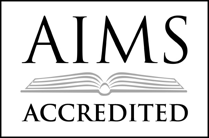Happy New Year from Milton
September 9, 2021 by
Shana tova, all!
This year, as we prepare for 5782 and the new school year, we have set our community kavannah, our intention, as the pursuit of shleimut, of wholeness.
Last year, I urged us all to consider curating the hagim, to pare things down to the essentials. I pushed myself to look at the fall holidays through the lens of ‘uncoverage’ and to consider what we might learn about ourselves, our families and our tradition by curating the hagim, rather than trying to ‘cover’ everything that’s usually on our lists. Now I’m turning around and pushing wholeness, even though we’re still living through a pandemic?
I promise I’m actually not making that big of a flip! I want to argue that there’s a difference between being whole and simply being full. Having a full calendar or busy work life does not always mean feeling fulfilled. Having an overflowing table or social calendar doesn’t mean you can’t or won’t feel lonely. In fact, in many cases, it’s the spaces between – the ‘gaps’ – that truly make us whole.
How can we distinguish in our actions between pursuing completeness – a fullness that is about contentment and bringing about internal and/or external peace – and the ability to just fill up our days or lives without striving toward completeness? Fullness is pretty easy, perhaps too easy. It’s about collection and consumption. But completeness takes intentionality, curation, and refinement.
My most mundane example of this is when I am underprepared for the hagim and just jump into grocery shopping without a plan, menu, detailed list, or focus. I operate from fear and a series of ‘what if’s’ – What if we don’t have enough food? What if we are in the mood for something else? What if 20 people stop by unexpectedly? I overflow my shopping cart (carts, if I’m at Trader Joe’s), our refrigerator, and pantry. Then, when I finally sit down and try to plan the meals, it turns out I’m missing at least one ingredient from each recipe I choose! So, while everything is full, even overflowing, nothing is complete. I then have to either resign myself to using what I have or set out to collect more. Neither option makes me feel whole, not to mention I’ve crowded out any time or space to prepare for the holidays in ways that might truly fill me up.
Shabbat serves as a weekly reminder that we must pause in the work of creation and consumption to be our best, and most creative, intentional, and connected selves. Counterintuitively, perhaps, time ‘off’ for reflection and connection has the potential to help us move from simply being full to being whole. 5782 is a shabbat for the land – a shmita year, when the land in Israel is expected to lay fallow. It is a year-long reminder that a whole cycle requires time to regenerate our soil, to pause in our creative work as a reinvestment in ourselves and a time to plan intentionally for the future.
As we pursue shleimut at school, we are looking at the whole child through this lens, and particularly through the pedagogy of Responsive Classroom, around which we are engaged in two-years of intensive learning and professional development, through 2023. We have structured our daily schedules to integrate time for tefillah, check-ins, openings/closings, and reflection. We want our schedules and our students’ school lives to not just be full, but to be whole.
To pursue shleimut (wholeness) is to me the essence of the yamim noraim (the days of awe/high holidays). The shofar calls us to seek a deep connection with our own inner world and inner voice, a shared responsibility with our communities for all that we’ve done right and what we’ve collectively done wrong, and we strive to move toward greater wholeness in the year to come.
Wholeness and peace are not destinations, they are aspirations and something that we practice each day, most effectively together. I cannot wait to work toward that hope with your children, our faculty and staff, and with each of you this year.
Shana tova!
Deborah






